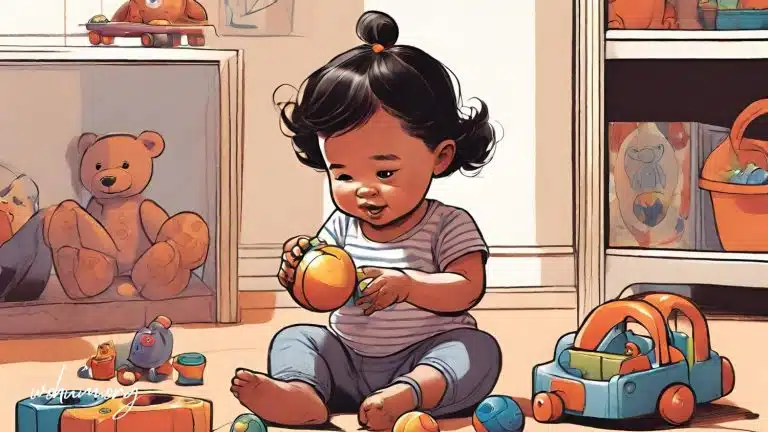Why is Play Important in Early Childhood Education?


In the fascinating world of early childhood education, play isn’t just a pastime; it’s a powerful and essential tool for a child’s development. Understanding the profound impact of play on a child’s growth and learning is crucial for parents. In this article, we’ll delve into the significance of play in early childhood education and explore its multifaceted benefits.
Let’s start by understanding the evolution of play. From simple peek-a-boo to elaborate make-believe scenarios, play is an instinct in children. It’s a way for them to explore the world and make sense of it. As parents, it’s essential to recognize that play is more than just fun; it’s a vital component of learning.
Play encourages children to think critically and solve problems. Whether figuring out how puzzle pieces fit together or constructing a fort with building blocks, play fosters problem-solving abilities.
Play often involves storytelling and imagination. These activities enhance memory and creativity, helping children become more imaginative and inventive.
Interactive play with others improves language skills, as children need to communicate their ideas, negotiate, and engage in conversations.
Also Read: Types of Language in Early Childhood
When children engage in collaborative play, they learn empathy, cooperation, and how to navigate social situations. These are vital life skills.
Play allows children to express and understand their emotions, teaching them how to manage and regulate their feelings.
From finger-painting to swinging on the playground, play hones fine and gross motor skills. It’s a critical aspect of physical development.
Active play promotes a healthy lifestyle by encouraging physical activity and a love for exercise.
Play, especially imaginative play, stimulates a child’s creativity. It allows them to explore new worlds and ideas, fostering a lifelong love for creativity.
Children who engage in make-believe scenarios tackle complex problems, albeit in a playful setting. This sharpens their problem-solving skills.
Allowing children to choose their activities and lead the play encourages independence and creativity.
Organized activities or games balance fun and learning with clear objectives and rules.
Sensory experiences like playing with sand, water, or various textures promote cognitive development through tactile exploration.
Explore our related article about The Benefits of Nature Play.
As a parent, your involvement in your child’s play is crucial. Here are some tips:
Engage in play with your child. This not only strengthens your bond but also shows the importance of play.
Offer diverse toys and materials that stimulate different types of play, from building blocks to art supplies.
Let your child’s imagination run wild during unstructured play. It’s a fantastic way to foster creativity.
Play equips children with skills they’ll need in school, such as problem-solving, creativity, and social interaction.
Engaging in activities they enjoy, like puzzles or games, helps children develop better attention spans.
Also Read: 6 Ways to Help Children Overcome Lack of Concentration
When learning is fun, children are more likely to be curious and eager to explore new subjects.
In conclusion, play is the cornerstone of early childhood education. It’s not just about keeping children entertained; it’s about nurturing their cognitive, emotional, social, and physical development. Parents, take the time to play with your children, encourage their imagination, and witness the remarkable growth and learning that occurs through the power of play. Remember, play is the language of childhood, and it’s a language worth understanding and speaking fluently.
A: Play is beneficial from infancy to early adolescence, and its impact varies with age. Adapting play activities to suit a child’s developmental stage is crucial.
A: Balancing play and academics is essential. Play and learning go hand in hand; they complement each other. Parents can create a schedule that incorporates both elements.
A: If a child consistently avoids play, lacks interest in age-appropriate activities, or struggles with social interaction, it may be a cause for concern. Consulting with a pediatrician or child psychologist is advisable.
A: Technology can have educational benefits; balancing screen time and traditional play is important. The physical, hands-on play remains essential for holistic development.

Get Your Resources to Your Email Now!